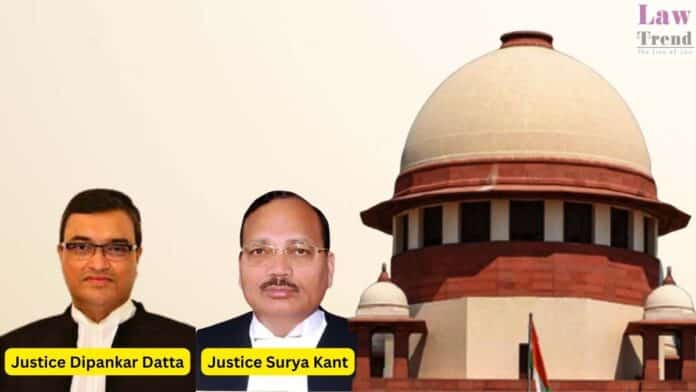The Supreme Court on Friday granted two weeks’ time to the Centre to respond to a plea to debar persons against whom charges have been framed in serious offences from contesting elections.
A bench of Justices Surya Kant and Dipankar Datta was informed by senior advocate Gopal Sankaranarayanan that the Union has not filed a reply in the matter.
“Counsel for Union of India seeks more time to file counter-affidavit. To be done within two weeks,” the bench said.
The top court, which had earlier issued notices to the Centre and the poll panel on the issue, was hearing a plea filed by lawyer Ashwini Upadhyay.
Besides debarring those against whom charges have been framed in criminal cases, the plea, filed through advocate Ashwani Kumar Dubey, has also sought a direction to the Centre and Election Commission of India (ECI) to take steps to restrain such candidates who are put on trial for serious offences.
The PIL has claimed that despite recommendations of the Law Commission and the court’s earlier directions, the Centre and the ECI have not taken steps in this regard.
The plea said of the 539 winners in the 2019 Lok Sabha election, as many as 233 (43 per cent) declared criminal cases against themselves.
Highlighting the statistics from a report of NGO Association for Democratic Reforms, the petition said there was an increase of 109 per cent in the number of MPs with declared serious criminal cases since 2009, with one of them declaring 204 criminal cases against himself, including cases related to committing culpable homicide, house trespass, robbery, criminal intimidation etc.
“What is alarming is that the percentage of candidates with criminal antecedents and their chances of winning have actually increased rapidly over the years,” the petition said.
Criminals who earlier used to help politicians win elections in the hope of getting favours appear to have cut out the middleman in favour of entering politics themselves.
Also Read
“Political parties, in turn, have become steadily more reliant on criminals as candidates ‘self-finance’ their own elections in an era, where election contests have become phenomenally expensive, but also because candidates with criminal antecedents are more likely to win than clean candidates,” it has alleged.
It has further alleged that political parties are competing with each other in a race to the bottom because they cannot afford to leave their competitors free to recruit criminals.
“The injury caused to people is large because the criminalisation of politics is at an extreme level and political parties are still setting up candidates with serious criminal antecedents. Therefore, voters find it difficult to cast their votes freely and fairly though it is their fundamental right, guaranteed under Article 19,” it has said.




